Pernille Ripp's Blog, page 39
August 28, 2017
When We Make a Child a Level
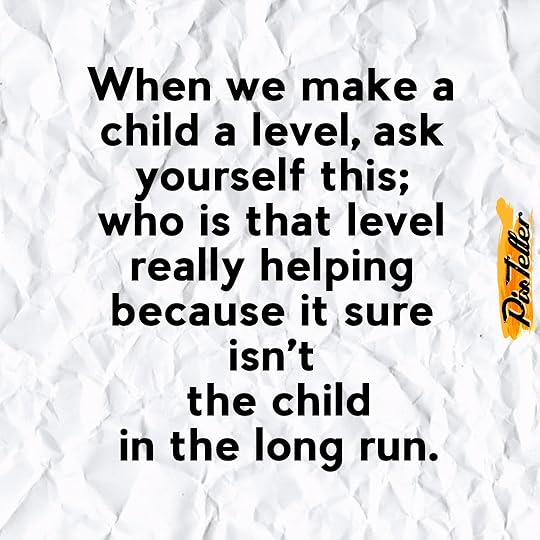
Pardon my passion for a moment, but a few things need to be said.
When we make a child a level we diminish the entire child. Levels tell a child that they are not worth us getting to know them. That we don’t have time to take the time we need to help them better. That their entire reading identity is the same as every other child that is at that level.
When we make a child a level, a letter, or a number, we are telling them that that is all they need to know. That that is all we need to know. That they do not know how to shop for books, that they can rely only on outsiders who have determined what is best for them. Thet their level speaks for them and that our conversations need to be about comprehension and skills, rather than who they are as readers.
When we make a child a level, we can teach more. We can do more. We can match kids up more easily. We can rely on others to do the hard work of getting to know the very child that is in front of us and help them discover who they are as readers, as human beings. And we can go home, lulling ourselves into thinking that we actually helped that child by telling them to only pick from certain levels of books because that is what the research told us to do.
But that is not what our reading instruction is only about. It was never JUST about matching kids to text. It was never JUST about finding the right fit book. It was never JUST about 99% comprehension rates, good fit books, or the five finger rule. It was never just about the quick solution or the short-term fix. In our obsession with getting things done, we have forgotten that it takes time to develop a reader, it takes time to become a reader, it talkes trial and error, and it takes discovery. Levels can take that away from us all.
It is about discovering why reading matters. Why reading makes us better human beings. Why they should leave our classrooms, our schools, and find more books so that they can continue to wonder, to search, and to feel something.
So when we make a child a level, ask yourself this; who is that level really helping because it sure isn’t the child in the long run.
PS: I was quoted today in a discussion piece in School LIbrary Journal, about how leveling disempowers children, other smarter people are quoted as well.
If you like what you read here, consider reading my newest book, Passionate Readers – The Art of Reaching and Engaging Every Child, out August 2017. This book focuses on the five keys we can implement into any reading community to strengthen student reading experiences, even within the 45 minute English block. If you are looking for solutions and ideas for how to re-engage all of your students consider reading my very first book Passionate Learners – How to Engage and Empower Your Students. Also, if you are wondering where I will be in the coming year or would like to have me speak, please see this page.
Filed under: Be the change, being a teacher, Literacy, Reading, Reading Identity


August 23, 2017
Are They Reading At Home?
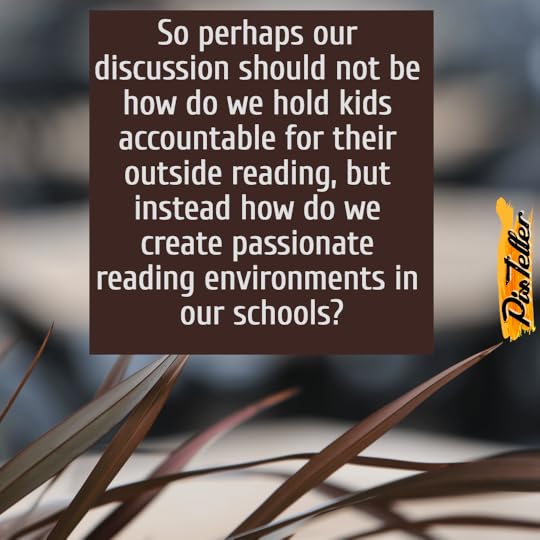
But how do you know they are reading? How do you know they read at home? How do you know that what they are reading is worth their time? Is challenging them? Is what they should be reading?
These are the questions I am asked a lot. These are also the questions I juggle myself. Once those kids leave our classrooms, how do we know what they do at home?
We are so focused on data. On proof. And I get it; without proof of further reading, how will they ever get better? And yet, the things we implement often lead to less reading, to less enjoyment, to future damage. So why spend our time now, thinking of ways to hold kids accountable for their outside reading when we don’t even know the kids yet? Why search for the one perfect way when choice and figuring out how we want to share our reading is vital for our reading identity development.
I used to use reading logs, after all, that parent signature certainly meant compliance. Then I had kids of my own and I realized that I pretty much sign whatever it is that is sent home from school. I also realized that the minute my kids had a log attached to it, the last thing they wanted to do was reading. I gave up the reading logs to the cheers of my students who told me that they had been instrumental in wanting to read less.
So then I turned to reader’s notebooks. Forced reflection after every read. Five minutes of writing about your thoughts, your feelings, or one of the questions I had posed. Five minutes to digest your reading, in silence. Five minutes every day, until I heard the groans of my students. Until they begged me to please stop. So I stopped. And I wondered, how then do I foster accountability in their outside reading lives when I know how important it is for kids to read?
And then I realized, that I can’t. That there is truly little I can do the moment they leave room 235D. That instead of worrying about how I will keep them accountable when they are not with me, that what I needed to focus on was what they were doing with me. That the biggest component of our reading instruction has to be to foster the love or lessen the dislike of reading so that it might inspire further reading once they left the classroom.
Because as adults, we figure out how we want to reflect on our reading. We read our books and then we make a choice; what do I want to do now? The book itself seems to guide our decisions; there are some books that I have to write about because they change me in such a fundamental way. There are some books I have to hand to others because I want them to have the same experience as I just did. There are some books that I cannot wait to book talk, knowing that they will inspire more kids to read. There are some I share on Instagram hoping that others will place them in their classroom. And then are some that I read and I put aside and then do nothing with.
Sometimes when we read we do nothing. That doesn’t mean we didn’t read, it just means that we had an experience we didn’t want to share. Why not offer that as an option to our students too?
So I ask my students now to explore. I give them time to discuss, more time is needed for sure, to book talk, to recommend. Sometimes we write. This year we will look at Flipgrid (I think) and use Instagram, and any other things that my students think may work for them. And there will also be times where we do nothing. Where the experience with the book was enough. And for some kids their reading will incerase at home because they finally fid some books to love, while for others it will be a whole year goal. Some will fight me on it, they do every year, and others will just need gentle nudging.
So perhaps our discussion should not be how do we hold kids accountable for their outside reading, but instead how do we create passionate reading environments in our schools? How do we foster a need to read? An interest that will carry through their days?
I am in this quest to create readers for a lifetime, not just for this year, and so I don’t need the false accountability that will end the moment they leave on the final day of school. I do not need tools like AR quizzes, reading logs, or forced nightly reflections that they do not change their habits long-term. I do not need to create more hoops for my students to jump through when it comes to reading; I need them to want to read.
If you like what you read here, consider reading my newest book, Passionate Readers – The Art of Reaching and Engaging Every Child, out August 2017. This book focuses on the five keys we can implement into any reading community to strengthen student reading experiences, even within the 45 minute English block. If you are looking for solutions and ideas for how to re-engage all of your students consider reading my very first book Passionate Learners – How to Engage and Empower Your Students. Also, if you are wondering where I will be in the coming year or would like to have me speak, please see this page.
Filed under: being a teacher, Literacy, Reading, Reading Identity


August 19, 2017
A Sign to Welcome Them All
I have been in my current classroom for three years, about to begin year number four. Never have I stayed in one classroom for so long and so my room, well, it is looking like I have been there a while. Everything has its place, everything is where it feels comfortable, but comfort doesn’t equal excitement, so in order to show off the excitement I have for this new batch of students, I want to change it up a little bit. As much as I can anyway with all of our book shelves, with all of our tables and chairs. And where does the change begin? Right as they enter the door.
One of the biggest components of our classrooms is the need for students to feel like they belong so I knew I wanted something to signal how glad I am that they, the very child they are, showed up. I also wanted something to communicate that all children are welcome, no matter their identity, no matter how they view themselves or are viewed by others. I kept coming back to a blog post I wrote in the aftermath of some of the hateful acts here in the USA and realized that I knew exactly what the sign should say. So here it is, I am so excited with how it looks, feel free to use the saying but please give credit. I used Jenna Sue Design on Etsy because I have used her before and love her style.
[image error]
Change starts with us and so does safety and feeling like you belong. I am glad this sign will be the first thing students see when they come through the door of our classroom.
If you like what you read here, consider reading my newest book, Passionate Readers – The Art of Reaching and Engaging Every Child, out August 2017. This book focuses on the five keys we can implement into any reading community to strengthen student reading experiences, even within the 45 minute English block. If you are looking for solutions and ideas for how to re-engage all of your students consider reading my very first book Passionate Learners – How to Engage and Empower Your Students. Also, if you are wondering where I will be in the coming year or would like to have me speak, please see this page.
Filed under: Be the change, being a teacher, first day, first week, new year


August 13, 2017
On the First Day
On the first day of school, how will the students be greeted by you? Will you stand by the door, saying hello, welcoming them in, or will you be busy with last minute preparations for the kids who already showed up?
On the first day of school will the kids be told where to sit or will they be given choice right away?
On the first day of school will the rules already be posted? The expectations already made? Or will you have that discussion with the kids so they can be involved in how they want to feel?
On the first day of school will the whole year have been planned out already or will you wait to see who these kids are and what they need? Will their voices be used to shape the curriculum or has that been done for them already?
On the first day of school will you be excited to start another year? Will you be honored to be a teacher? Will you be aware of the immense responsibility and opportunity that comes with what we get to call a job?
On the first day of school will you worry more about all of the information that you have to share and the things you have to get done, rather than how the students feel as they leave your classroom?
On the first day of school will you plant the seeds of the future learning that will take place? Will your students’ voices be heard already or will the day be dominated by yours? Will the work you do be meaningful or something just to get through?
Will you be honored to meet each child? Will you welcome each one, no matter their past, no matter their needs? Will you face your own fears and teach courageously so we can begin to right the wrongs in this world? Will you find your own voice to start courageous conversations?
On the first day of school will you be glad you showed up, perhaps exhausted at the end, yet happy or will you dread the year that has just started, unsure of why you chose to come back? Will the students leave thinking that perhaps this year will be amazing, that perhaps they will be interested, that perhaps they will be challenged, that perhaps you will care about them? Or will they drag their feet and answer “fine…” when their parents ask them how the first day was.
On the first day of school will you know that this year will be worth it? That this will be an opportunity to grow? That yes, there may be hard days, but there will also be so many great ones? Will you tell the kids thank you when they leave and mean it?
On the first day of school, we set the tone for the learning that will happen the rest of the year. For how kids will feel when they enter our learning spaces. For how we will be viewed as a new adult in their life. Let’s do it right this year.
If you like what you read here, consider reading my newest book, Passionate Readers – The Art of Reaching and Engaging Every Child, out August 2017. This book focuses on the five keys we can implement into any reading community to strengthen student reading experiences, even within the 45 minute English block. If you are looking for solutions and ideas for how to re-engage all of your students consider reading my very first book Passionate Learners – How to Engage and Empower Your Students. Also, if you are wondering where I will be in the coming year or would like to have me speak, please see this page.
Filed under: Be the change, being a teacher, first day, first week


Win A Copy of My New Book Passionate Readers
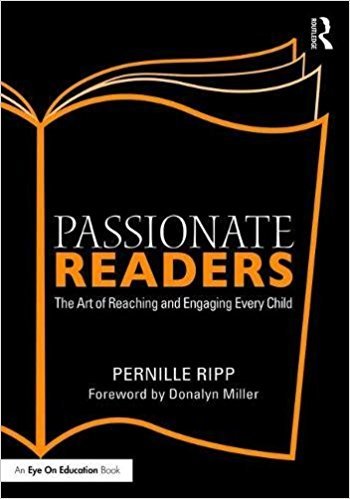
In four days my new book comes out. I have been trying for a while to come up with a catchy blog post to announce it, but the truth is, my heart is heavy with the images of hatred coming from Virginia. With the calls to action, yet the fear so many educators have when it comes to teaching against hate in our classrooms. It seems silly for me to be excited about a book. But perhaps that is life in a nutshell, we are conflicted with our emotions and driven toward change. Good can exist along evil. Happiness can exist along hatred. Even as we reel with the news that unfolds around us, we are preparing for our first days, or perhaps we are already in them, getting to know this new great group of kids.
I wrote Passionate Readers as a way to give my students’ voices a bigger platform. To once again share the common sense advice that they have bestowed upon me and anyone else that would listen as I asked them how we could make reading suck less. (Student words…) I wrote this book not as a literacy expert, but as one who is on a journey to become better at teaching reading, at creating reading communities, at helping students hate it less or even love it more. As someone who was faced with 45 minutes for all English Language Arts and faced with the daunting task of getting vocal resistant readers to give books a chance. I filled this book with the research that I stand upon, but also the practical day-to-day that we all crave when we seek inspiration. I filled this book with every small thing that has worked and also the things that haven’t. I filled it with all of me and now, the world awaits. And it is terrifying, yet exhilarating to see it be released.
So in honor of the release date of Passionate Readers, I would like to give a copy away. Once I have a copy myself, I will mail it to one winner and hope that it becomes a book that is worth your time. All you have to do to enter to win is leave a comment on this post. The contest will run until August 17th at midnight, the day the book comes out.
PS: If you would like to order your own copy, please go here
If you like what you read here, consider reading my newest book, Passionate Readers – The Art of Reaching and Engaging Every Child, out August 2017. This book focuses on the five keys we can implement into any reading community to strengthen student reading experiences, even within the 45 minute English block. If you are looking for solutions and ideas for how to re-engage all of your students consider reading my very first book Passionate Learners – How to Engage and Empower Your Students. Also, if you are wondering where I will be in the coming year or would like to have me speak, please see this page.
Filed under: being a teacher


August 12, 2017
Great Picture Books to Inspire Hope in the World
It seems that these are dire times. That hate, anger, and rage against others is more than the norm than ever. I can tell you, going home to Denmark, many friends have asked me; what in the world is happening in America? At times, it feels as if we are judged as a nation by the very loud actions of a few and so it comes down to the rest of us, those whose voices are for some reason not being heard to make sure that the America we know is one of love, of hope, of kindness. A place where all can exist unafraid. What better way to spread more kindness, love, and hope in the world with a few great picture books?
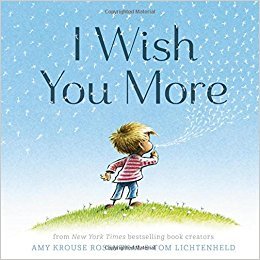
I wonder if there will ever be a time where I can read I Wish You More by Amy Krouse Rosenthal (Author), Tom Lichtenheld (Illustrator) without tearing up. After all, Amy’s whole mission in life seemed to be to spread more love and happiness. What better way to remind ourselves that this is what we should wish for everyone?
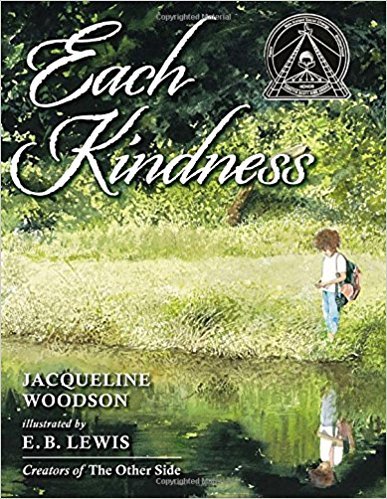
Each Kindness by Jacqueline Woodson (Author), E. B. Lewis (Illustrator) continues to be a needed book. We must teach children that their actions, even their unkind ones, have repercussions and that we all play a part in how we make others feel. While this book does not offer up a happy ending, in my eyes, it offers up the perfect one.
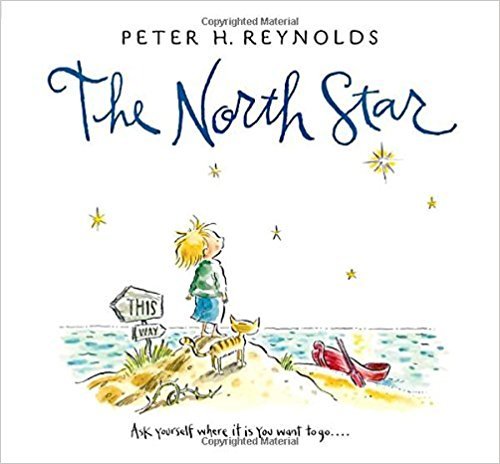
My favorite Peter H. Reynolds book, which says a lot, is The North Star. We follow the journey of a boy who goes on a windy path to get to where he needs to be. I end every single year with a read aloud of this book because my students are on a journey that is just beginning, even if the future seems a bit unknown and sometimes scary.
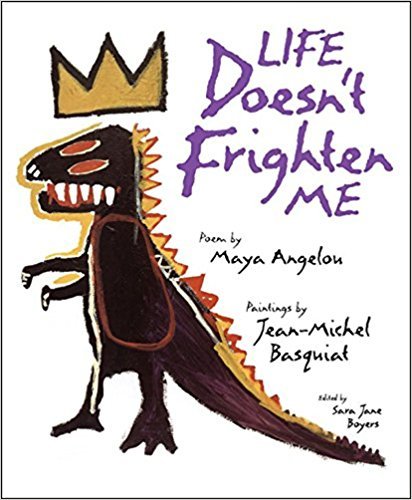
Originally published in 1993, Life Doesn’t Frighten Me is about to be reprinted in 2018 for its 25 year anniversary. What a powerful picture book written by Maya Angelou using paintings by Jean Michel Basquiat to remind us to face our own fears.
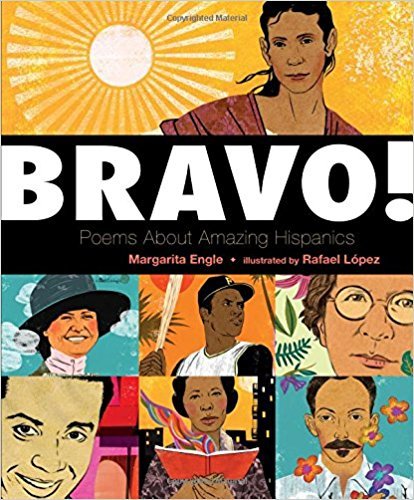
When we learn about what others have accomplished and overcome sometimes our own troubles do not seem as scary. I love Bravo!: Poems About Amazing Hispanics
by Margarita Engle (Author), Rafael Lopez (Illustrator) for this very reason.
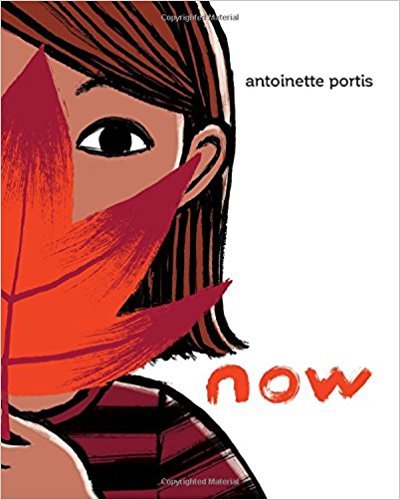
At times, the biggest reminder we need to not feel afraid is to be in the very moment we are in. Now by Antoinette Portis is magnificent in its simplicity and powerful reminder of mindfulness, quiet, and patience.
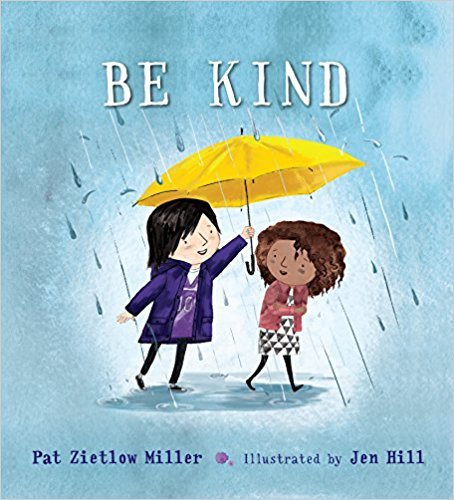
While not out until February 2018, I wish Be Kind by Pat Zietlow Miller and illustrated by Jen Hill would be the very first read aloud in every single classroom. We are so quick to tell children to be kind, but do they really know what that means?
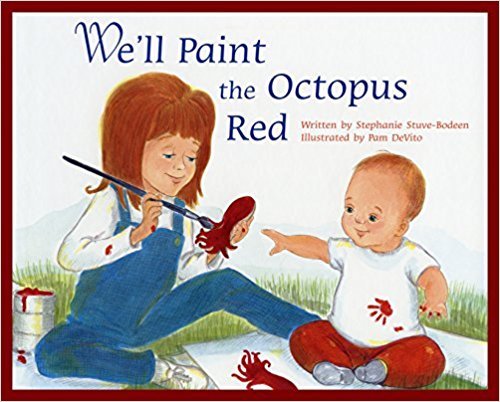
Sometimes our best-laid plans and biggest dreams don’t turn out the way we had anticipated, so then what do we do. In We’ll Paint the Octopus Red
by Stephanie Stuve-Bodeen (Author), Pam Devito (Illustrator) we are reminded of how hope and dreams are not lost even when it seems that way.
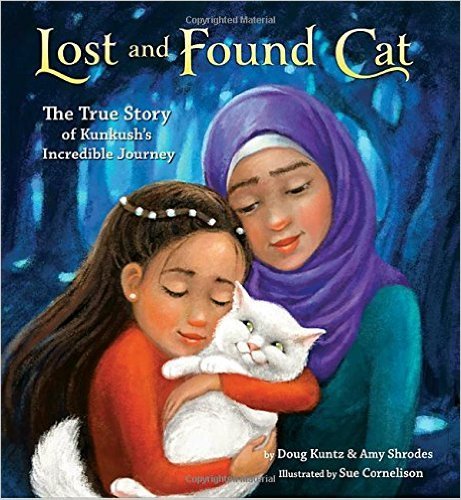
Lost and Found Cat: The True Story of Kunkush’s Incredible Journey
by Doug Kuntz (Author), Amy Shrodes (Author), Sue Cornelison (Illustrator) is about a family who doesn’t lose hope that they will be reunited with their long-lost cat. While also offering us a starting point to bring in the stories of refugees in our classrooms, this picture book is one that all ages can connect with.
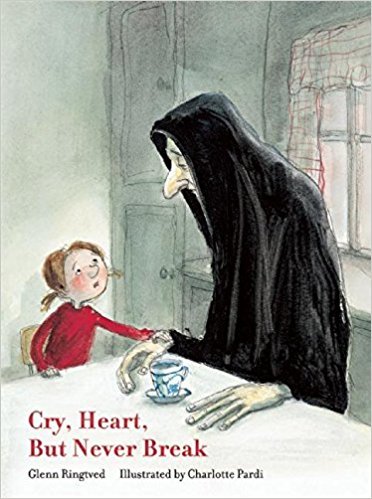
How can you find hope in a picture book about death? In the Danish picture book Cry, Heart, But Never Break by Glenn Ringtved (Author), Charlotte Pardi (Illustrator), Robert Moulthrop (Translator) they manage to do just that. While death is inevitable, how we feel about it is a choice.
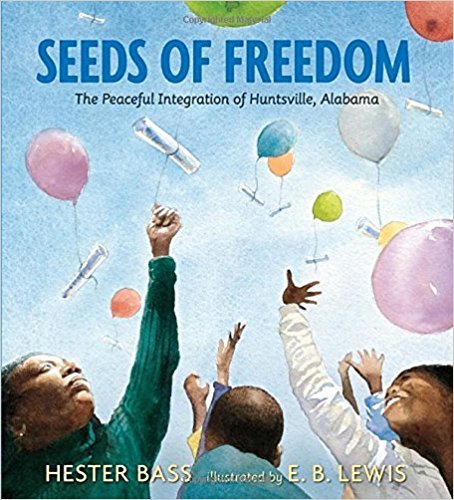
Have we forgotten how to be united as a nation? Seeds of Freedom: The Peaceful Integration of Huntsville, Alabama by Hester Bass (Author), E.B. Lewis (Illustrator) shares a remarkable story that would be a great reminder to many.
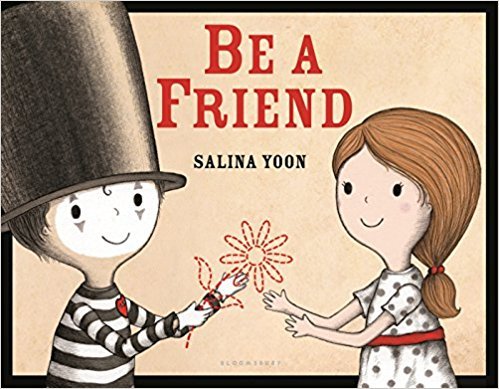
Be a Friend by Salina Yoon reminds us all to see past the obvious when looking for a friend. After all, who doesn’t hope to meet joy?
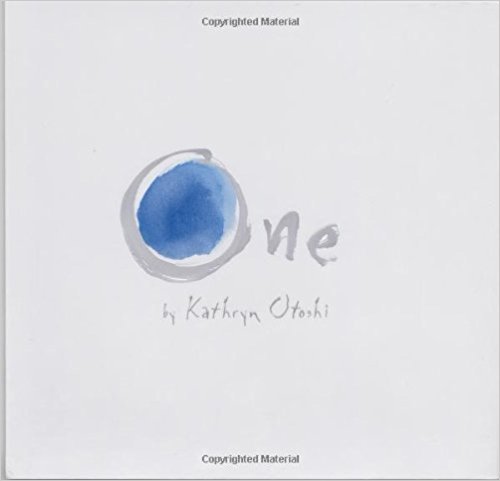
While it is certain that all of Kathryn Otoshi’s books could be on this list, my favorite is One. The book reminds us of what the power of one can do in the face of adversity.
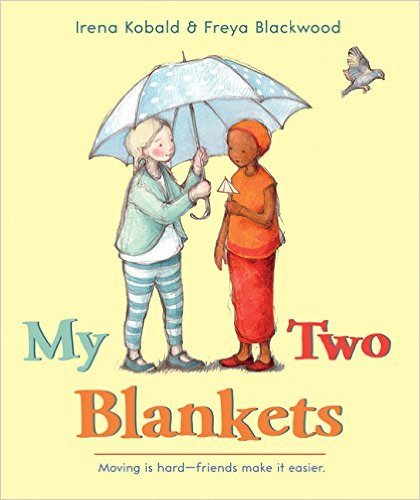
My Two Blankets by Irena Kobald (Author), Freya Blackwood (Illustrator) reminds us of the power of familiarity even when everything seems new and scary. It is also a beautiful tale of friendship and reaching out to others.
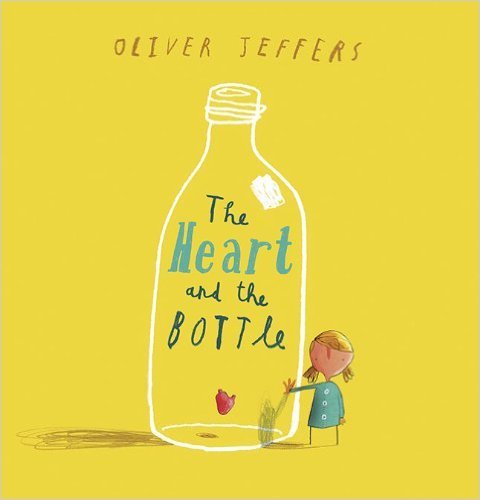
Sometimes the world is so scary that all we want to do is shut the door and protect our hearts. The Heart and the Bottle by Oliver Jeffers reminds us to not do that but to keep on loving even when we are afraid of our hearts breaking.
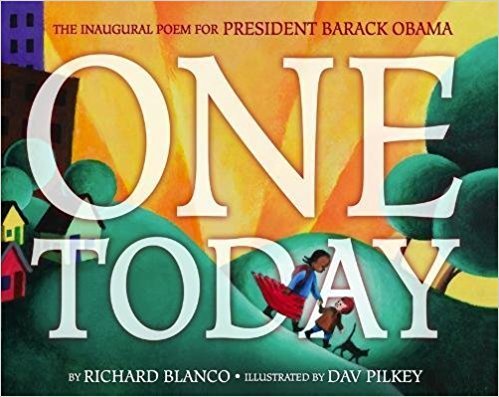
We are one, even when we are split, even when we are hurting, even when others seem hell-bent on splitting us apart. One Today by Richard Blanco (Author), Dav Pilkey (Illustrator) is the beautiful poem from President Obama’s second inauguration is the commemoration of the dreams so many of us carry for the United States.
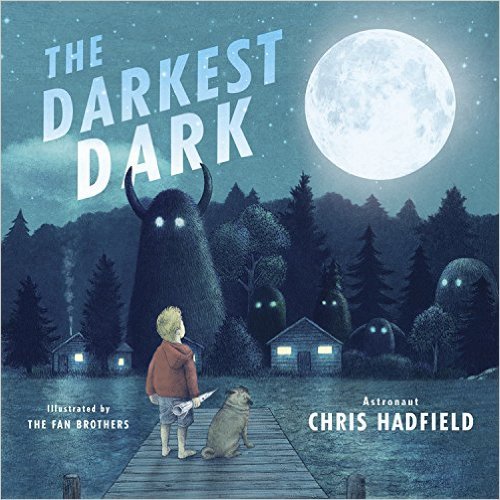
What do you do when you fear the dark? Find a way to overcome that fear as shown in
The Darkest Dark by Chris Hadfield (Author), The Fan Brothers (Illustrator).
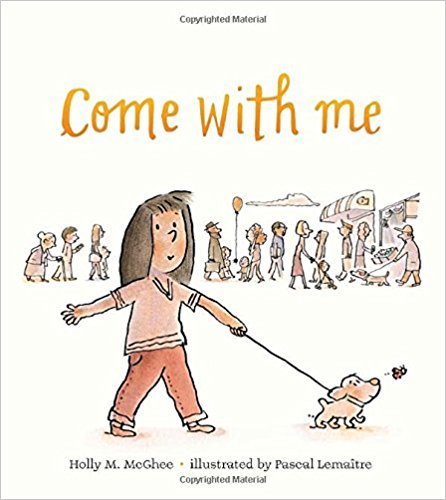
What can we do when we are afraid? We can leave our homes and greet the things that scare us? Out in September, Come With Me by Holly M. McGhee (Author), Pascal Lemaître (Illustrator) reminds us to do just that.
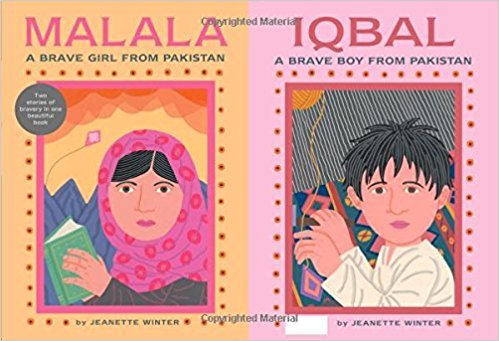
Malala, a Brave Girl from Pakistan/Iqbal, a Brave Boy from Pakistan: Two Stories of Bravery by Jeanette Winter shares the story of two remarkable kids who, even though they were afraid, still stood up for what they believe in.
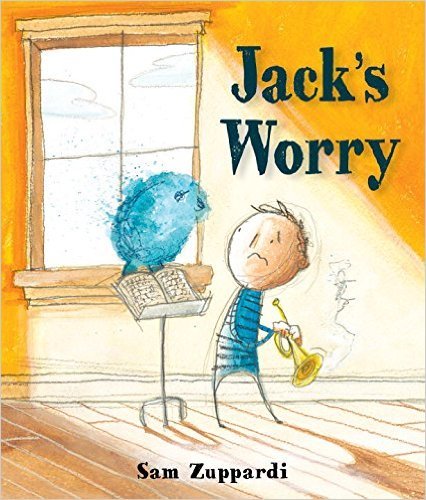
Jack’s Worry from Sam Zuppardi teaches us a great lesson on what to do with the worry that follows us around. If we run from it, it grows, we must face it head on.
A few great picture books to bring back hope, and love, and kindness. What are your favorites? To see all of our favorite books, go here.
If you like what you read here, consider reading my newest book, Passionate Readers – The Art of Reaching and Engaging Every Child, out August 2017. This book focuses on the five keys we can implement into any reading community to strengthen student reading experiences, even within the 45 minute English block. If you are looking for solutions and ideas for how to re-engage all of your students consider reading my very first book Passionate Learners – How to Engage and Empower Your Students. Also, if you are wondering where I will be in the coming year or would like to have me speak, please see this page.
Filed under: being a teacher, hopes, picture books, Reading


August 8, 2017
What Parents Wish We Would Ask Them About Their Child
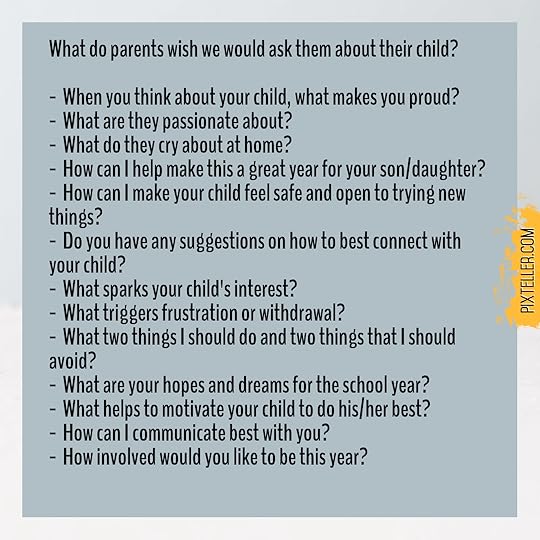
We tried to have kids for three years before we were successful. Three years of hoping this was the time. Three years of doctors shaking their heads, of appointments, of surgery, of medicine to help. Three years of dreaming. When she came I cried knowing that the miracle she was would never be fully understood by others who had not traveled our journey. She cried right along with me.
When she started school I wrote a letter to her telling her of the hopes, the fears, and the dreams we had for her as she embarked on this next phase of her journey. We held her tight, hugged her, and sent her on her way.
For the past eight years, we have been the parents of her and three more siblings, all with their own winding road into being. We have watched in awe as their personalities have grown, as their will have formed. As their knowledge of life, of who they are, of where they fit have expanded and shrank, depending on what happened at any given time. And we have seen the not-so-great, the tantrums, the curveballs that all kids present you with and we have held our breath at times when we have been in public and this thing that is happening right in front of us that seems to have come out of nowhere is making us both want to just die of embarrassment.
You are our most precious. You are the things we are the proudest of. But you are also what we worry about the most. And so with three kids about to start school, I hope we get a chance to tell your teachers who you are. Not so we can pretend you are perfect but so we can present you for everything that you are. Willful and strong, creative and flighty, funny and sometimes mad, but always you, and always a child who is exploring who they are and what life has to offer.
Today, as I prepared our own home survey that we send out to all of our incoming parents, I asked my PLN which question do they wish, as parents, they would be asked about their children. The answers were too good not to share, so thank you, everyone, who responded. Thank you for sharing your hopes so that we can all become better teachers. So that we can start the year on the very best foot, hearing who your child is from the people that know them best.
What do parents/guardians wish we would ask them about their child?
When you think about your child, what makes you proud?
What are they passionate about?
What do they cry about at home?
How can I help make this a great year for your son/daughter?
How can I make your child feel safe and open to trying new things?
Do you have any suggestions on how to best connect with your child?
What sparks your child’s interest?
What triggers frustration or withdrawal?
What two things I should do and two things that I should avoid?
What are your hopes and dreams for the school year?
What helps to motivate your child to do his/her best?
What else? What would you add to the list? How would you like to share the story of who your child is with these new teachers?
If you like what you read here, consider reading my newest book, Passionate Readers – The Art of Reaching and Engaging Every Child, out August 2017. This book focuses on the five keys we can implement into any reading community to strengthen student reading experiences, even within the 45 minute English block. If you are looking for solutions and ideas for how to re-engage all of your students consider reading my very first book Passionate Learners – How to Engage and Empower Your Students. Also, if you are wondering where I will be in the coming year or would like to have me speak, please see this page.
Filed under: being a teacher, first week, new year, parents


August 6, 2017
On In-Service and Back to School Training
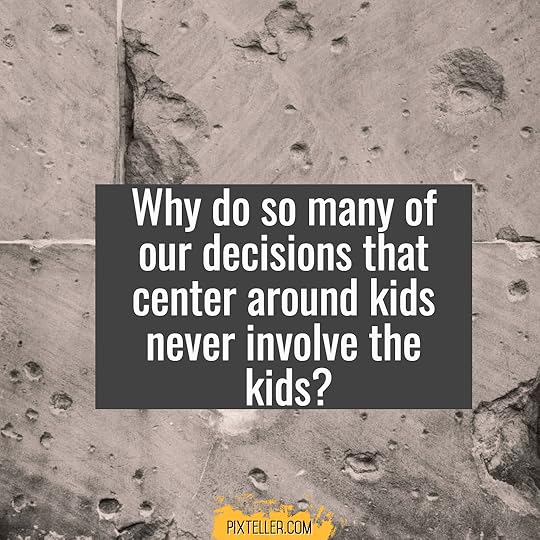
For many of us, it has been a summer of learning.
For many of us, it has been a summer of renewal.
Of finding new ideas
Of tweaking the old ones.
Of refocusing, re-thinking, and perhaps even re-committing.
We eagerly await the arrival of those kids, we hope will become our kids, and we dream of the year to come.
But before the first day of school there is bound to be training. There is bound to be new programs, new initiatives, new things added on to our already heavy shoulders in order to make this year the possibly best year we have ever had. And I try to be excited and I try to be ready and I try to be open-minded, but I realize now that while the program may be amazing. While the research may be compelling. While the intentions may be the best, it doesn’t really matter.
You could bring us the very best program in the world, but it may never be enough.
Because school is not really about implementing programs. School is not really about the lesson plan. Or the curriculum. Or even about the research. It is about the kids, of course. We say it all the time. And yet, where is the time spent in our back-to-school days? What are our discussions centered on? What do we walk away from our in-service days knowing more about? The program or the kids?
I for one hope it is the kids, but often see them left to the end, brought up as data points and survey results. Brought up in lofty dreams and grand ambitions. Why not make in-service about the very kids we teach and invite a few in? Why not interview them to ask about their hopes for the school year? Why not have them craft questions or areas they would like us to get better at. Why do so many of our decisions that center around kids never involve the kids?
So if you are in charge, if you are the one making the agenda, bring in the kids. Add their voice. Add their presence. Let us focus not on the training of more curriculum implementation, on all the new initiatives, at least not the entire time, but instead on the problems the students challenge us to solve. Let us focus on what we say we are really there for; the kids and let them guide us into making this the best year yet.
If you like what you read here, consider reading my newest book, Passionate Readers – The Art of Reaching and Engaging Every Child, out August 2017. This book focuses on the five keys we can implement into any reading community to strengthen student reading experiences, even within the 45 minute English block. If you are looking for solutions and ideas for how to re-engage all of your students consider reading my very first book Passionate Learners – How to Engage and Empower Your Students. Also, if you are wondering where I will be in the coming year or would like to have me speak, please see this page.
Filed under: administration, Be the change, being a teacher, first day, first week, new teacher, new year


July 31, 2017
They Don’t Just Need to Find the Right Book…
She tells me, ” I just don’t like reading, Mrs. Ripp, and I am okay with that…”
I turn to her about to say the line we all have said, (can you say it with me?), but before I open my mouth, she interrupts…
“And please don’t tell me I just need to find the right book because that’s what they all say…” and with that, she walks away.
Her words follow me home and now two years later still ruminate. I was about to say it, I have said it, and I probably will say it again, and yet she is right, of course. How many times have we told a child that they “just” need to find that right book? How many times have we told a child that reading will make complete sense once they find the right book? As if there is one single book that they just need to find and then everything will fall into place. One that book is found then the magic of reading will all of a sudden unfold around them and they will all be readers after all?
How easy this is to say to a child when they tell us their reading truths and yet have we really thought about what we are telling them?
When we tell a child that they “just” need to find that one right book we dismiss much of their reading identity without even knowing it.
When we tell a child that they “just” need to find that one right book we dismiss all of the reading they have done to that point.
When we tell a child that they “just” need to find that one right book we dismiss the work that goes into reading for many of our students and all of the work they have put into becoming readers.
Sure, it is a hopeful statement, especially if you have the memory of that one book that made the biggest difference to you. But what about the child that tries every single day to read and it still doesn’t make sense? What about the child that did find that book but then was not able to find another one?
Because the thing is with helping students become readers who like to read, it is not about just finding one book. It is about finding one book they love and then finding the next one, and then the next. That doesn’t simply happen no matter what we tell kids. It takes work, patience, persistence, and even some luck at times. It takes conversations and questions and hope for every child. It takes relationship and communication. Honesty and even frustration. It takes you knowing a child and a child knowing themselves. Because while one great book can be just a fluke two great books are harder to dismiss. It is about helping them find these books on their own. about figuring out who they are. About validating all of the experiences they have had with reading so far and either protecting the positive or changing the negative.
And so before we let the words roll off our tongue so easily, stop for a moment and think; what is it we really mean when we say “just find the right book?” Because it is not just the book they need, it is the time, the skill, the motivation, and the dedication. And while it starts with a great book it does not end there, even in the best of circumstances.
If you like what you read here, consider reading my newest book, Passionate Readers – The Art of Reaching and Engaging Every Child, out August 2017. This book focuses on the five keys we can implement into any reading community to strengthen student reading experiences, even within the 45 minute English block. If you are looking for solutions and ideas for how to re-engage all of your students consider reading my very first book Passionate Learners – How to Engage and Empower Your Students. Also, if you are wondering where I will be in the coming year or would like to have me speak, please see this page.
Filed under: being a teacher, Literacy, Reading, Reading Identity


July 26, 2017
For the Kids Who Show Up
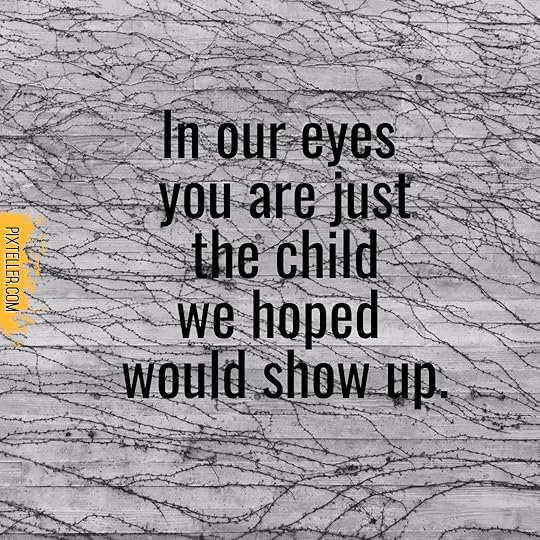
This is for the kids whose stories I don’t know yet.
This is for the kids whom I haven’t met.
This is for the kids whose names stare at me from class lists, whose eyes shine brightly in their school pictures, who right now mean little to me.
But they will.
This is for the kids who hope we will like them, maybe even love them.
For the kids who need us to have their backs.
For the kids who are scared to share who they are.
For the kids who were scared and shared anyway.
This is the for the kids who were born this way, somehow deemed not normal in our gender/race/religion obsessed society. Who fear the wrath of those who label them different. Who are scared before they come to our schools. Who don’t think they will be able to find a book among our piles that speak to who they are.
This is for the kids who are part of all of the kids we say we teach when we write our fancy vision statements, when we discuss how we are going to create safe schools and then do nothing to create community.
This is for the kids who need us most, who may not even be able to share why they need us, yet look to us to keep them safe as they try to access the education they have been promised.
So as we head back to school. As we start our trainings. As we meet as a community to discuss how this will be the year we try to reach all the kids, make sure we are really talking about ALL the kids.
Not just the white kids.
Not just the money kids.
Not just the cis kids.
Not just the straight kids.
Not just the Christian kids.
Not just the kids that fit whatever default view we have of what normal is.
As teachers, we try to speak up for all of our kids but we need to know that our schools have our back. That we can create communities that are truly safe for all the kids that show up and not just for those someone decided deserved to be protected. That our school boards mean it when they say that this school, this community, is for all kids to succeed, for all kids to have a chance. Not because it is politics, but because it is human decency.
This is for all the kids who dread the first day of school because they are not sure what they will face. This is for the teachers who fear as well.
We may not be many.
We may not be the majority.
We may not always get it right.
But we see you.
And in our eyes, you are normal. In our eyes you are just the child we hoped would show up, so welcome. I am glad you are here.
PS: Go read Dana Stachowiak’s post
Filed under: being a teacher, being me





